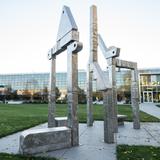- Western Culinary Institute provides basic training and education for cooks and apprentice chefs. The curriculum offers you the opportunity to: Acquire the qualities of a professional, entry-level cook including stamina, dexterity, hand-eye coordination, ability to work with others, timing, and the artistry of food preparation. Learn and effectively practice advanced technical skills in food preparation and service. Become familiar with purchasing and inventory controls, buffet work and plate presentation, front-of-the-house operations, and basic principles of kitchen management. Understand the principles of food identification, nutrition, dietetics, and food/beverage composition. Gain an appreciation for the history, evolution, and international diversity of the culinary arts. Develop a sense of professionalism necessary for working successfully in the food service/hospitality industry. Western Culinary Institute offers a full spectrum of culinary education combining the history and teachings of the world-renown Le Cordon Bleu School with a challenging and comprehensive curriculum. Opportunities for Western Culinary Institute Culinary Arts, Hospitality & Restaurant Management, and Pâtisserie and Baking degree program graduates are tremendous in the ever-expanding hospitality and culinary arts industry.
School Highlights
Le Cordon Bleu College of Culinary Arts-Portland served 452 students (100% of students were full-time).
The college's student:teacher ratio of 30:1 was higher than the state community college average of 21:1.
Minority enrollment was 36% of the student body (majority Hispanic and Black), which was less than the state average of 47%.
School Overview
Le Cordon Bleu College of Culinary Arts-Portland
(OR) Community College Avg.
Carnegie Classification
Item not available
Not applicable, not in Carnegie universe (not accredited or nondegree-granting)
Institution Level
At least 2 but less than 4 years
At least 2 but less than 4 years
Institution Control
Private, for profit
Private not-for-profit
Total Faculty
15 staff
192 staff
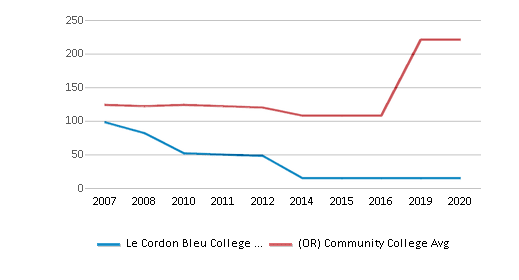
Student Body
Total Enrollment
452 students
729 students
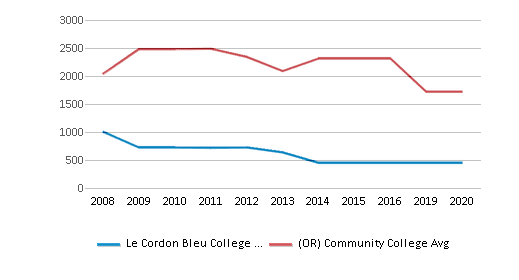
Student : Teacher Ratio
30:1
21:1
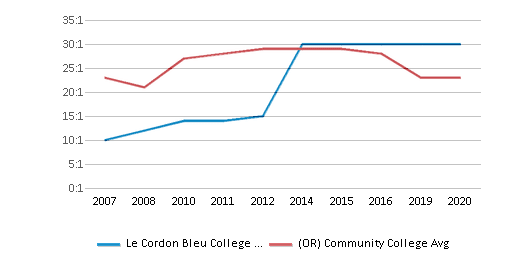
# Full-Time Students
452 students
310 students
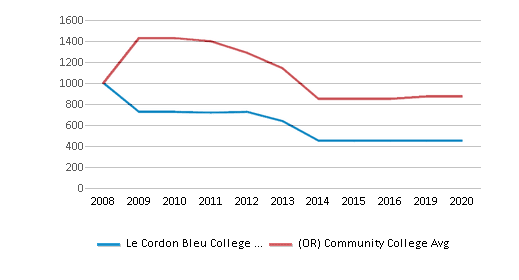
# Part-Time Students
n/a
2,153 students
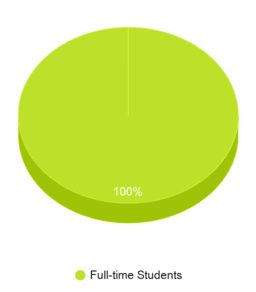
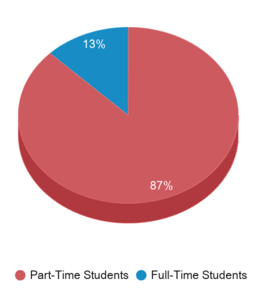
# Enrollment Undergraduate
747 students
339 students
# Full-Time Undergraduate Students
452 students
310 students
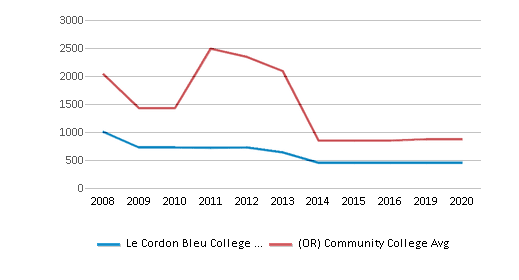
# Full-Time Graduate Students
n/a
193 students
# Part-Time Undergraduate Students
n/a
2,153 students
# Part-Time Graduate Students
n/a
153 students
Total Dormitory Capacity
n/a
270 students
% American Indian/Alaskan
2%
1%
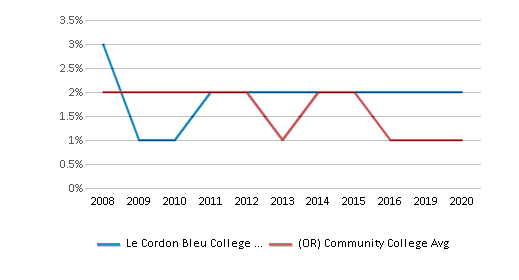
% Asian
3%
5%
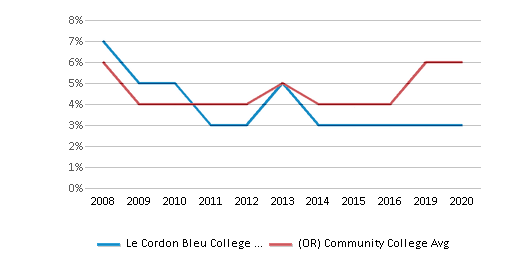
% Hispanic
8%
20%
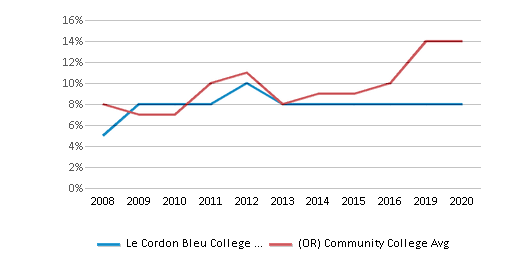
% Black
5%
3%
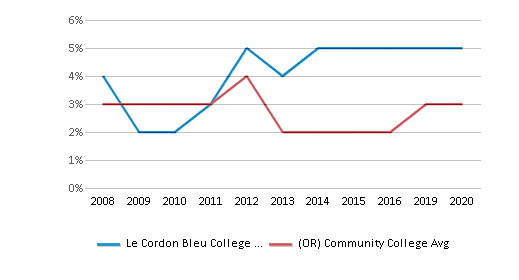
% White
64%
53%
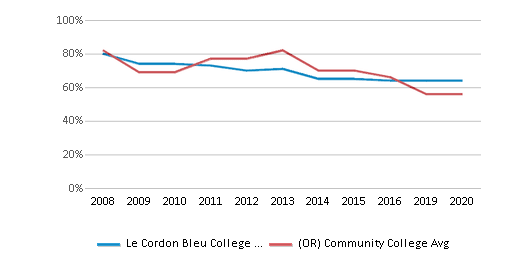
% Hawaiian
1%
1%
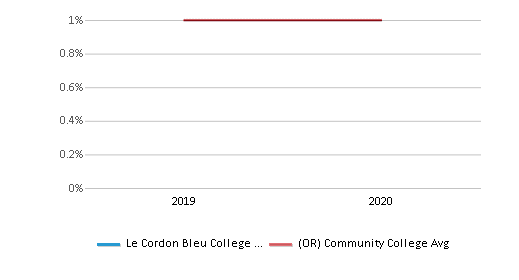
% Two or more races
1%
5%
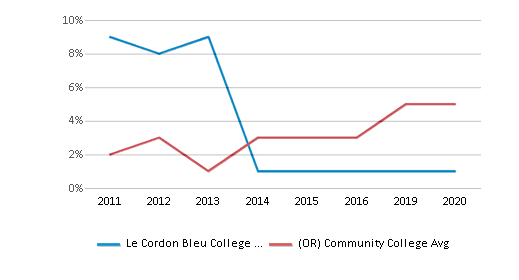
% Non Resident races
n/a
1%
% Unknown races
16%
11%
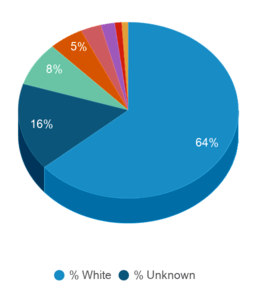
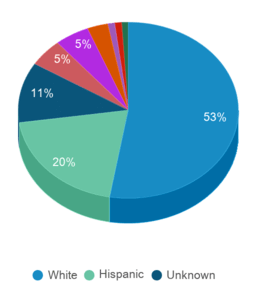
Diversity Score
0.58
0.66
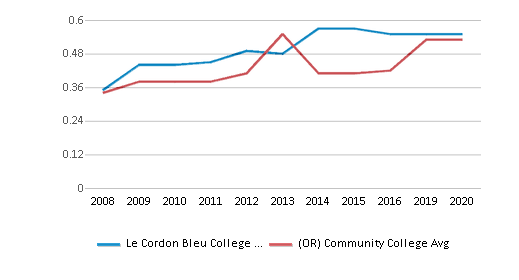
College Completion Rate (Students who graduate in less than 4 years)
64%
18%
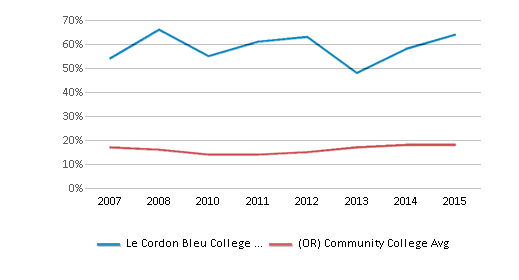
College Completion Rate (Students who graduate in 4 years or more than 4 years)
n/a
0.5833%
Average Graduate Earnings (10 Years)
$32,200
$33,800
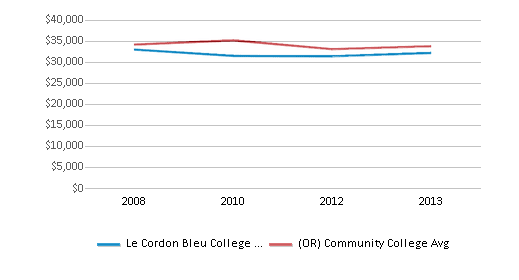
Tuition and Acceptance Rate
Private State Tuition Fees
$13,361
n/a
% Students Receiving Some Financial Aid
94%
79%
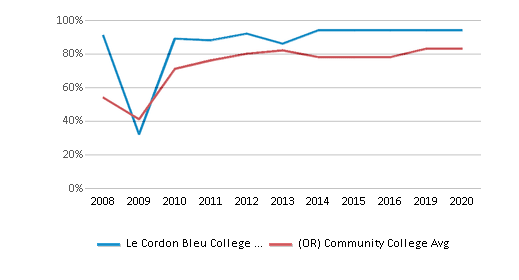
Median Debt for Graduates
$16,500
$15,375
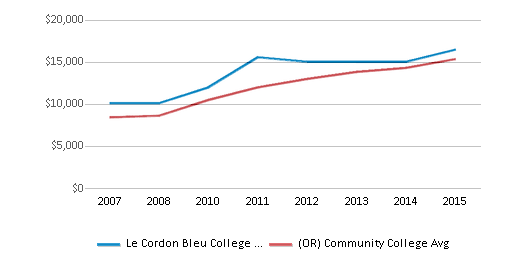
Median Debt for Dropouts
$6,000
$6,156
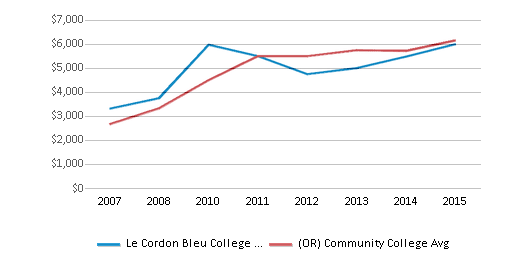
Acceptance Rate
n/a
100%
Source: 2020 (or latest year available) Integrated Postsecondary Education Data System (IPEDS)
Frequently Asked Questions
How much does Le Cordon Bleu College of Culinary Arts-Portland cost?
Le Cordon Bleu College of Culinary Arts-Portland's private state tuition is approximately $13,361.
Recent Articles

Obtaining Your Bachelor's Degree at a Community College
Explore the evolving landscape of community colleges offering bachelor's degrees, addressing affordability, accessibility, and workforce needs.

A to Z of Community College Certificates and Courses
From business and healthcare to technology and skilled trades, the article showcases the breadth of options available to students seeking to enhance their knowledge, develop new skills, or pursue career advancement.

What is a Community College?
This comprehensive guide explains what a community college is, its history, and its role in higher education. It covers the types of programs offered, differences from four-year colleges, benefits of attending, and important considerations for prospective students, providing valuable insights for those exploring educational options.

